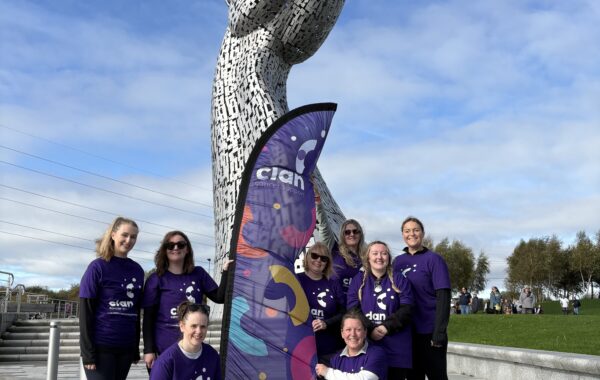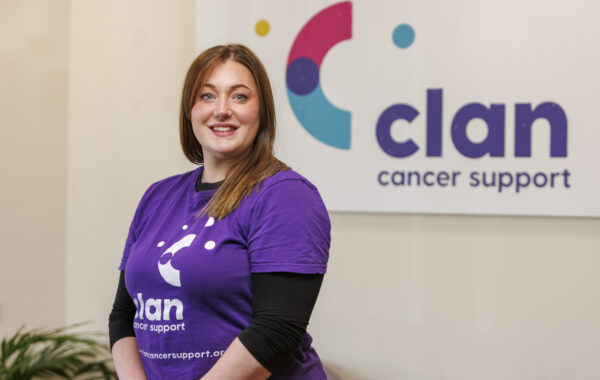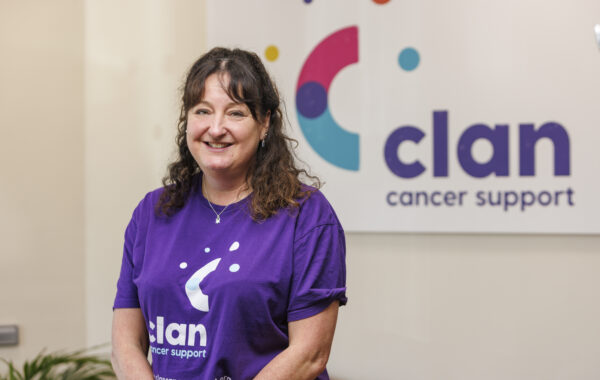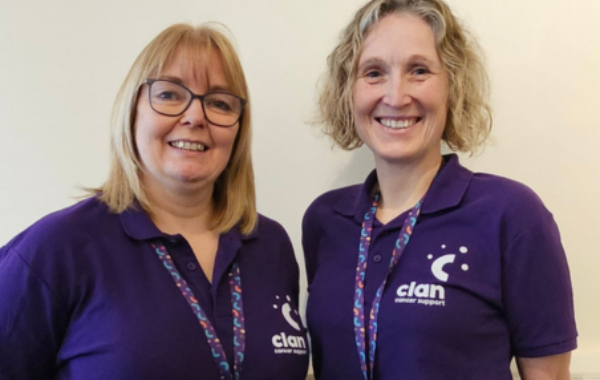
Blog: Pancreatic cancer symptoms
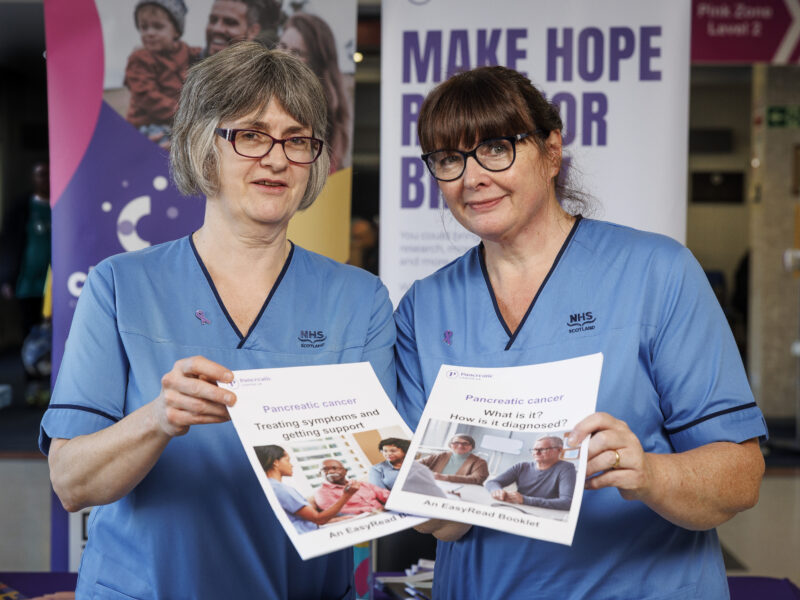
Despite being the deadliest common cancer, public awareness of pancreatic cancer remains worryingly low in Scotland and across the UK.
Being diagnosed as early as possible provides the very best chance of having life-saving treatment.
Rachel Thomson and Catherine Thomson are specialist nurses in Aberdeen Royal Infirmary’s Hepato-Pancreato-Biliary (HPB) department, who support patients during diagnosis and treatment.
They’ve been talking to Clan Cancer Support as part of Pancreatic Cancer Awareness Month (November) about the most common symptoms associated with the disease and what to do if you’re worried.
Pancreatic cancer symptoms
Pancreatic cancer can be difficult to detect because there are a wide variety of symptoms with many of them vague and easily attributable to other health conditions. They can also come and go.
Tumours located in the head of the pancreas are more likely to be detected early because they tend to cause jaundice, but that isn’t always the case. Other symptoms associated with pancreatic cancer include:
- Indigestion
- Bloating
- Unexplained weight loss
- Early satiety (meaning that you feel full quickly when eating)
- Changes to your bowel movements, including diarrhoea, watery or greasy stools
- Back pain
- Abdominal pain
- Nausea
- Loss of appetite
- Diabetes which has diagnosed recently but not associated with weight gain
- Fatigue
Many of these symptoms are common and most people who experience them will not have pancreatic cancer. However if you have concerns it is important to keep a diary of symptoms and contact your GP if the symptoms persist for more than four weeks.
Risk factors
We don't know what causes pancreatic cancer. Anyone can get it, but risk does increase with age. The average age of diagnosis is 75 it can occur at a younger age.
Other risk factors, which may increase chances of developing pancreatic cancer are:
- Smoking
- Alcohol
- Obesity
- Chronic pancreatitis
- Family history of pancreatic cancer
- Diabetes
It is important to recognise risk factors and symptoms associated with pancreatic cancer which should determine if you need to see your GP sooner. You can reduce risk by stopping smoking, limiting alcohol and eating a healthy balanced diet.
Testing for pancreatic cancer
Whilst clinical tests are currently being trialled, there is no testing or screening programme available to detect pancreatic cancer at an early stage.
GPs can check bloods and arrange initial investigations depending on symptoms. They can also refer to specialist hospital services where often a CT scan is arranged. Specialised tests can then be arranged, which can include biopsy.
What to do if you are worried about pancreatic cancer for you or a loved one
- Keep a diary of symptoms
- Make an appointment with your GP to discuss concerns
- If symptoms are worsening or not improving, be persistent and rearrange a return appointment with your GP
This blog was created as part of Pancreatic Cancer Awareness Month, 2025. Clan and Pancreatic Cancer UK will be at Aberdeen Royal Infirmary on the below dates to provide information about the support available:
Tuesday, November 11 from 10.30am on the main concourse
Tuesday, November 18 from 10.30am in the Rotunda.
